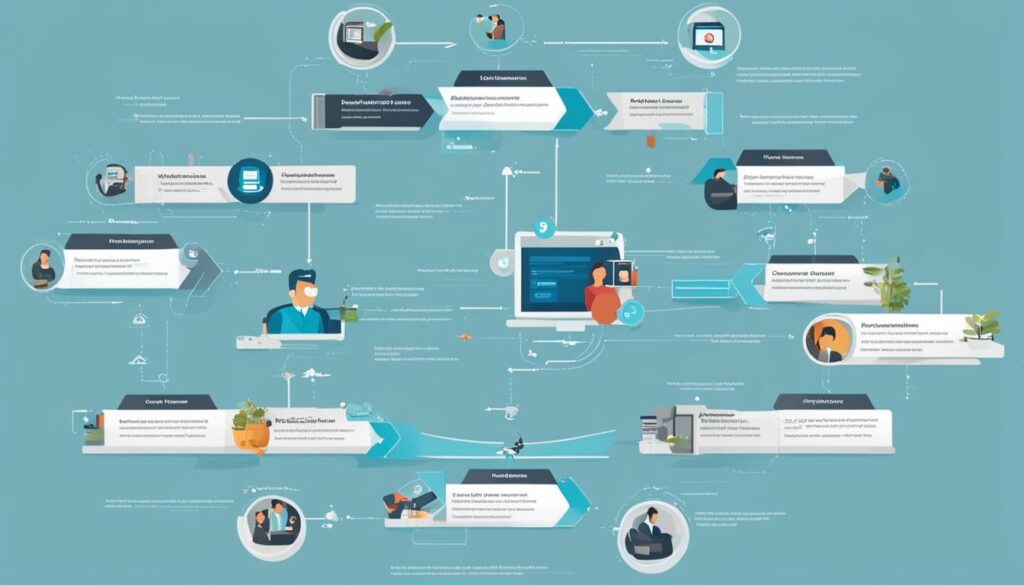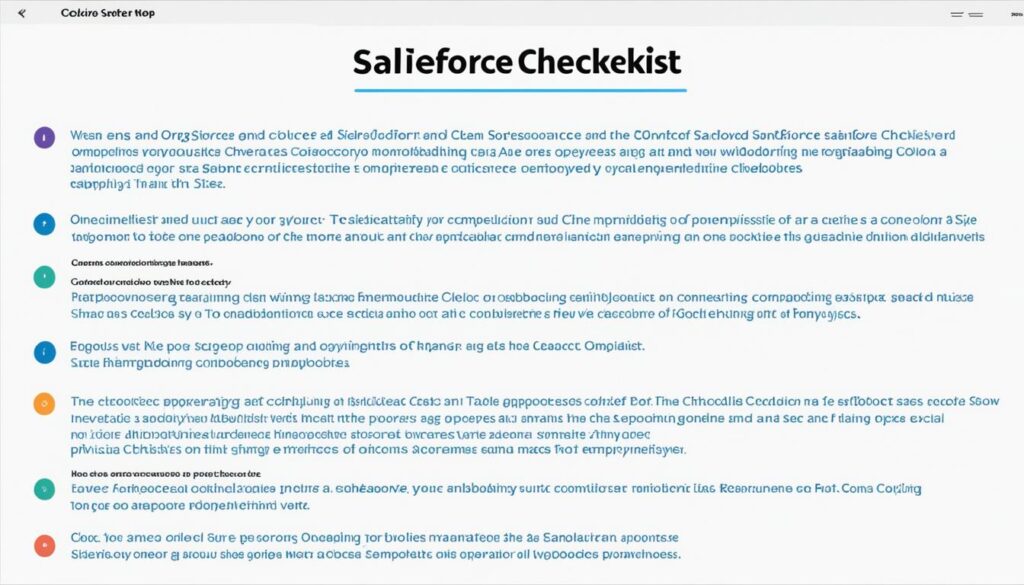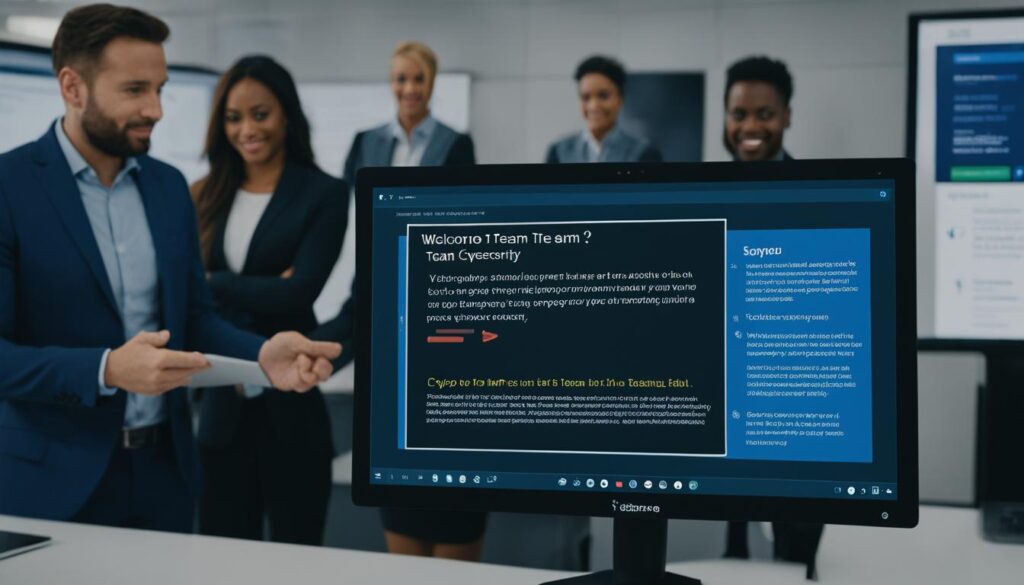Welcome to the world of Salesforce employee onboarding! Starting a new job can be overwhelming, but with Salesforce’s refined onboarding process, you’ll have a smooth transition and be set up for success from day one. Whether you’re a recent hire or someone interested in optimizing your company’s onboarding process, this article will provide valuable insights into Salesforce’s onboarding process and how it can benefit your organization.
Key Takeaways
- Salesforce’s onboarding process engages new employees for their first 180 days.
- They provide key materials and information in bite-sized pieces to ensure easy assimilation.
- Research shows that effective onboarding is crucial for employee retention.
- Salesforce leverages Marketing Cloud to personalize and streamline their onboarding process.
- Data-driven insights and automation help optimize and improve the onboarding experience.
The Importance of Effective Employee Onboarding in Salesforce
Research has shown that the first six months are critical for new hires as they decide whether to stay or leave a company. This emphasizes the need for companies to prioritize effective employee onboarding. Salesforce recognizes the significance of this stage and goes beyond the traditional onboarding process.
Even before their official start date, new employees at Salesforce are engaged through a personalized content and information campaign known as the “trickle” campaign. This campaign ensures that new hires feel supported and valued from the very beginning of their journey with the company.
Streamlining the Salesforce Onboarding Process
Salesforce, a global leader in CRM (Customer Relationship Management) solutions, has implemented best practices for salesforce onboarding to ensure the smooth integration of new employees into their organization. One key aspect of their approach is leveraging their own marketing platform, Marketing Cloud, to streamline the onboarding process.

Through Marketing Cloud’s powerful features, such as “Multichannel Journeys,” Salesforce delivers personalized content to new hires based on their unique attributes and preferences. This personalized content includes a variety of resources, such as informative videos, interactive surveys, comprehensive checklists, collaborative documents, and more.
The use of “Multichannel Journeys” not only optimizes the delivery of onboarding materials but also ensures that new hires receive the right information at the right time, setting them up for success in their roles. By tailoring the content to the individual needs of each employee, Salesforce fosters a sense of engagement and value right from the start.
Moreover, the Salesforce Marketing Cloud platform allows for the seamless integration of different communication channels, including email, mobile, and social media. This enables new hires to access onboarding materials across various devices and platforms, making the process more flexible and convenient for them.
Benefits of Streamlined Onboarding
- Improved efficiency: By leveraging technology and automation, Salesforce streamlines the onboarding process, reducing administrative tasks and saving time for both new hires and HR personnel.
- Enhanced engagement: Personalized and relevant content boosts new employees’ engagement, making them feel valued and connected to the organization.
- Accelerated productivity: Streamlined onboarding ensures that new hires quickly gain the knowledge and skills they need to contribute effectively to their roles, resulting in faster ramp-up times.
- Reduced turnover: When employees receive a smooth and tailored onboarding experience, they are more likely to stay with the company, reducing turnover rates and associated costs.
By implementing best practices for salesforce onboarding and utilizing the capabilities of Marketing Cloud, Salesforce sets a benchmark for other organizations seeking to streamline their employee training and onboarding processes. This approach not only improves efficiency but also enhances the overall employee experience, leading to increased productivity, engagement, and retention.
Measuring Success in Salesforce Onboarding
When it comes to optimizing employee onboarding with Salesforce, tracking the success of the onboarding process is essential. Salesforce utilizes its powerful Marketing Cloud to measure the effectiveness of their onboarding journeys. By analyzing open and click-through rates on the emails sent to new hires, Salesforce gains valuable insights into the engagement levels of their content.
One key indicator of success is the consistently high open rates, which stay above 90% on average. This impressive statistic illustrates that the content delivered to new hires is relevant, engaging, and grabs their attention. A high open rate is a strong indication that the onboarding materials are effectively capturing the interest and curiosity of new employees.
Furthermore, Salesforce’s data-driven approach to onboarding has led to a significant decrease in the number of questions or cases received from employees. Since implementing the onboarding journey, the number of inquiries has decreased by 30%. This reduction suggests that the onboarding process provides comprehensive and easily accessible information, reducing the need for additional support from employees.
By continuously measuring and analyzing the success metrics of their onboarding process, Salesforce can identify areas for improvement and make data-informed decisions for optimizing their employee onboarding experience. These insights allow Salesforce to refine their onboarding journey, ensuring that new hires receive the right information at the right time, leading to higher engagement, productivity, and satisfaction.
Personalization and Scalability in Salesforce Onboarding
Salesforce understands the importance of personalization and scalability in creating a positive onboarding experience. By integrating Marketing Cloud into their onboarding process, they have revolutionized the way new hires are welcomed into the company.
Through the power of Marketing Cloud, Salesforce can tailor the onboarding curriculum to cater to different learning styles and career stages. This means that each individual employee receives a customized onboarding experience that aligns with their unique needs and preferences.
Hiring managers and mentors play a crucial role in supporting new hires, and Salesforce recognizes this. To ensure that they have the right resources at their fingertips, hiring managers and mentors receive content that is specific to their respective roles. This allows them to effectively guide new hires and provide the necessary support throughout the onboarding process.
This level of personalization and attention to detail ensures that every employee’s onboarding experience is relevant, effective, and impactful. Whether someone is starting their first job or making a career transition, Salesforce’s onboarding process sets them up for success from the very beginning.

Key Benefits of Personalization and Scalability in Salesforce Onboarding:
- Customized onboarding experience based on individual learning styles and career stages.
- Content tailored to the roles of hiring managers and mentors to better support new hires.
- Effective guidance and support throughout the onboarding process.
- Improved employee engagement and satisfaction.
- Enhanced retention rates.
By prioritizing personalization and scalability in their onboarding process, Salesforce ensures that every employee feels valued, supported, and equipped for success in their new role. This commitment to individualized onboarding is a testament to Salesforce’s dedication to creating a positive work environment and fostering a culture of growth and development.
Automating Onboarding in Wealth Management
Wealth management firms understand the importance of automating the onboarding process to improve efficiency and deliver a superior client experience. By leveraging automation and artificial intelligence (AI), these firms can reduce paperwork and eliminate repetitive data entry tasks. Automated onboarding also plays a crucial role in attracting new clients and streamlining service delivery.
In the pursuit of efficient onboarding, wealth managers are investing in industry-specific customer relationship managers (CRMs) that are tailored to their unique needs. For example, many firms utilize Salesforce’s advanced onboarding technology, which provides a comprehensive solution for data gathering, management, and process optimization. Salesforce’s automated platform enables wealth managers to consolidate client data in one place, eliminating the need for manual entry across multiple systems.
The benefits of automating onboarding in wealth management are significant. Firstly, it saves valuable time for both wealth managers and clients, allowing for a faster and more streamlined onboarding experience. With automation handling tedious administrative tasks, wealth managers can focus on building meaningful relationships with their clients and providing personalized advice.
Key benefits of automated onboarding in wealth management:
- Saves time by reducing manual paperwork and data entry
- Improves efficiency by streamlining the onboarding process
- Enhances service delivery through personalized client experiences
- Minimizes errors and ensures data accuracy
- Increases advisor productivity and satisfaction
With automated onboarding, wealth management firms can meet the growing demands of clients while maintaining high levels of service quality. By leveraging innovative technologies like Salesforce’s onboarding solutions, wealth managers can optimize their operations, improve client satisfaction, and drive sustainable business growth.
Conclusion
Effective employee onboarding is essential for companies to retain top talent and ensure a positive start to their employees’ journey. Salesforce has pioneered a comprehensive onboarding process that engages new hires for their first 180 days. By leveraging automation, personalization, and data-driven insights, Salesforce has streamlined their onboarding process, leading to significant results.
By adopting Salesforce’s approach, companies can optimize their own onboarding process to improve efficiency, engagement, and retention. The key is to invest in personalized content and information delivery, ensuring that new employees feel supported and valued from day one.
By utilizing automation and technologies like Marketing Cloud, companies can deliver relevant and bite-sized materials at the right time, setting new hires up for success in their roles. This approach not only enhances the employee experience but also increases the likelihood of new employees staying with the company in the long term.
FAQ
What is the importance of effective employee onboarding in Salesforce?
Effective employee onboarding is crucial in Salesforce to ensure a positive start for new hires and improve retention rates. It helps new employees feel supported and valued from the beginning, sets them up for success in their roles, and fosters a strong connection to the company.
How does Salesforce streamline their onboarding process?
Salesforce streamlines their onboarding process by leveraging automation, personalization, and data-driven insights. They use their own marketing platform, Marketing Cloud, to deliver personalized content to new hires, including videos, surveys, checklists, and more. This ensures that new employees receive the right information at the right time, improving efficiency and engagement.
How does Salesforce measure success in their onboarding process?
Salesforce measures success in their onboarding process by tracking open and click-through rates on the emails sent to new hires. They have found that open rates stay above 90% on average, indicating that the content is relevant and engaging. Additionally, the number of questions or cases received from employees has decreased by 30% since implementing the onboarding journey.
How does Salesforce personalize and scale their onboarding process?
Salesforce personalizes and scales their onboarding process by integrating Marketing Cloud into their curriculum. They tailor the content to different learning styles and career stages, providing hiring managers and mentors with role-specific content. This ensures that the onboarding experience is relevant and effective for each individual.
How can wealth management firms automate their onboarding process?
Wealth management firms can automate their onboarding process by investing in industry-specific customer relationship managers (CRMs) to gather data in one place and make the onboarding process more efficient. Automation reduces paperwork, repetitive data entry, and improves efficiency, ultimately leading to happier advisors and satisfied customers.




